MercoPress. South Atlantic News Agency
Tag: soybean
-
Saturday, September 17th 2011 - 05:07 UTC
Mercosur consolidates as leading soybean region with 52% of world’s production
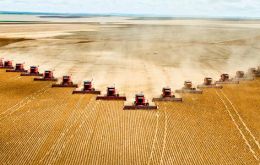
In twelve years Mercosur has consolidated as the leading region in soybean production with 52% of the world crop and the potential to further expand area and yields.
-
Thursday, September 8th 2011 - 05:49 UTC
Mercosur/Asia soy-market forum project brings together leading experts
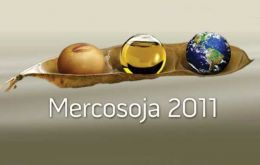
Experts from South America, US, Europe, India and China will be discussing next week in Rosario, Argentina the possibility of an Asia-Mercosur grains and oilseeds market in which soybeans will be playing the leading trade role.
-
Tuesday, August 23rd 2011 - 06:23 UTC
Brazil’s main producer of soy beans is the Argentine group El Tejar

Guess who is the main producer of soy beans in Brazil, the country that is the world’s second exporter of oilseed behind the United States?, a Brazilian, no an Argentine group.
-
Monday, August 22nd 2011 - 07:28 UTC
Argentina expected to approve the use of Bayer GM soy-seeds
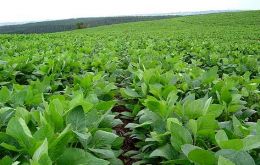
Mercosur full member Argentina this week is expected to approve the use of genetically-modified soy seeds made by German company Bayer as part of its push to increase farm production, a top Argentine official said on the weekend.
-
Wednesday, August 17th 2011 - 23:42 UTC
La Niña threatens Brazil and Argentina crops says Oil World
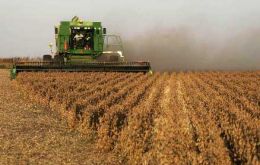
South American grain and oilseed production may be in jeopardy from the formation of a La Niña weather pattern, which might curb rainfall in parts of Brazil and Argentina, Oil World said.
-
Tuesday, August 16th 2011 - 06:19 UTC
China wants to buy directly from Brazilian farmers, avoid intermediation
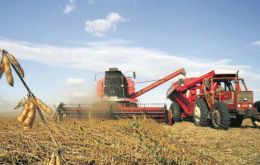
China, the second-largest buyer of soy in the world wants an end to intermediation by US multinational companies working in the sector and plans to invest purchasing directly from farmers in Mato Grosso and another five states in Brazil, according to the Brazilian press.
-
Thursday, August 4th 2011 - 06:28 UTC
Uruguay soy crop reached 1.5 million tons with average yield of 1.788 kilos

Soybean was king of corps in Uruguay last summer with 1.5 million tons planted in 862.000 hectares and with an average yield of 1.788 kilos per ha, according to the latest data from the country’s Agriculture Statistics Office, DIEA.
-
Tuesday, August 2nd 2011 - 07:07 UTC
Brazil’s trade surplus more than doubles in July over a year ago

Brazil’s trade surplus more than doubled in July from a year ago fuelled by higher commodity prices in spite of the over-valued Super Real that is having an impact on manufactured goods exports and promotes the import of ‘cheap’ products.
-
Wednesday, July 20th 2011 - 09:22 UTC
Reduced Chinese import makes and cheaper palm oil, see G-3 exports fall

Soybean processing and exports from the US, Argentina and Brazil, the largest shippers, were below expectations in the second quarter on reduced Chinese imports and competition from palm oil, Oil World said in a Tuesday released report.
-
Friday, July 15th 2011 - 06:09 UTC
“Grain prices are more linked to the US dollar than to food demand”

“Saving in US dollars or in soybeans is the same” cautioned Argentine economist Carlos Melconian, who argued that “grain and oilseed prices are more linked to the value of the dollar than to demand for food produce”.
